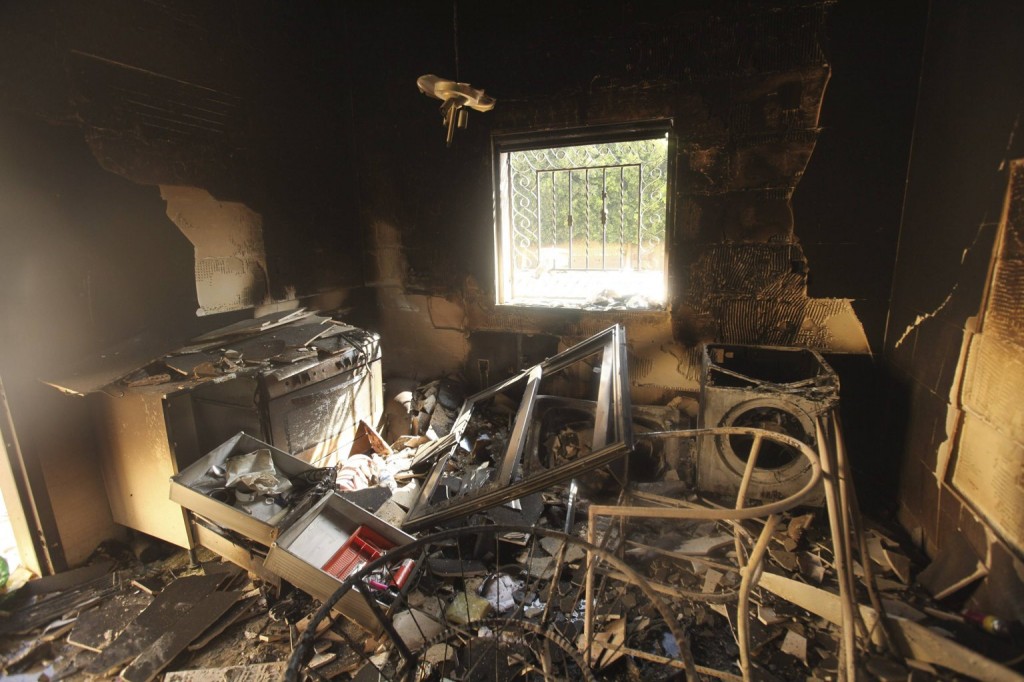
What remains of the U.S. consulate in Benghazi, Libya after coming under attack on Sept. 11, 2012. Photo credit: Reuters/Esam al-Fetori
Sometimes you have to do quite a bit of searching to find a good topic for an article. Sometimes the topic finds you. Since my blog is about democracy, I would be remiss if I did not mention the events that transpired on the evening of Sept. 11, 2012 in Libya.
As are most, I am shocked and saddened to hear of the death of an American diplomat and several others at the hands of angry protesters. It is the job of ambassadors and diplomats to improve and expand international cooperation and understanding. Thus, it is especially galling that those who took Ambassador Christopher Stevens’ life were of the very people he spent his career serving and helping.
As someone looking to work in the field of international relations, on the one hand, a tragedy like this involving a government official is a scary and sobering reminder of the dangers of this kind of work. On the other hand, it is one of the best examples of why people like Ambassador Stevens are so important and necessary in this world. If we (meaning the U.S., Libya, humanity) don’t rededicate ourselves to achieving the goals he and his slain colleagues fought and sacrificed for, then we are lost.
Personal freedoms of expression form the bedrock of America’s democracy, and that of many of countries. Yet no act, however contentious or reviled, can excuse the abuse of those freedoms that took place in Benghazi the other day, freedoms the Libyan people fought so hard to realize.
As President Obama put it, “Since our founding, the United States has been a nation that respects all faiths. We reject all efforts to denigrate the religious beliefs of others. But there is absolutely no justification for this type of senseless violence — none.”
While the aftermath of the attack will continue to unfold, we should take some time to recognize and be grateful for the freedoms democracy affords. And always be aware of the heavy price some must pay to see those freedoms live on.